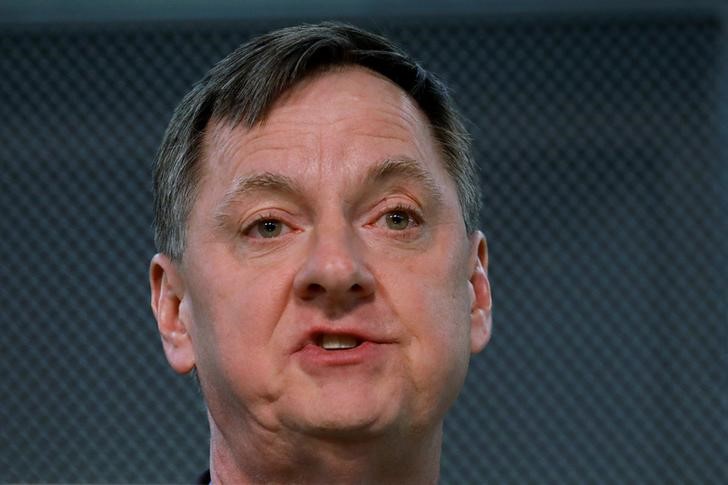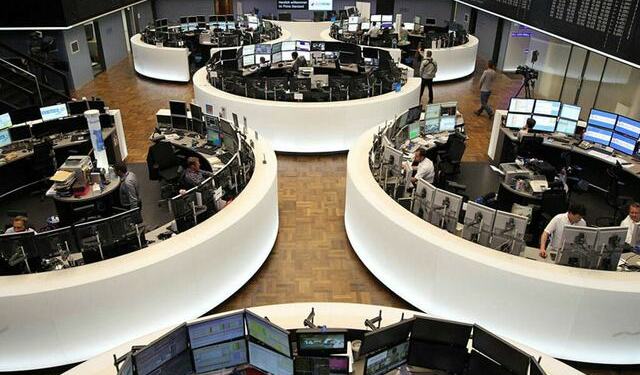
© Reuters.
By Geoffrey Smith
Investing.com — The Federal Reserve will have to raise interest rates a little above 4.5% and keep them there for some time to bring inflation down, a senior policymaker warned on Monday.
“I see the nominal funds rate rising to a bit above 4.5% early next year and then remaining at this level for some time while we assess how our policy adjustments are affecting the economy,” Chicago Fed President Charles Evans said in a speech, the text of which was released online.
Evans said this would represent a real – that is, inflation-adjusted – rate of around 2% when benchmarked against inflation expectations, and a significant brake on the economy as a result.
He defended the Fed’s succession of big interest rate hikes in recent months, which he said were necessary to bring real rates out of negative territory at a time when inflation is running at its highest in 40 years.
However, he also warned of the risk that the Fed may tighten too far.
“Overshooting is costly, too, and there is great uncertainty about how restrictive policy must actually become,” Evans said. “This puts a premium on the strategy of getting to a place where policy can plan to rest and evaluate data and developments.”
Evans’ comments are among the first from a Federal Reserve official to comment directly on September’s U.S. jobs report, which showed payrolls still expanding at a historically decent rate, and otherwise showed the labor market remaining tight, as months of broad gains in earnings fail to have much impact in luring people back into the workforce.
The jobs report showed the participation rate – which measured the overall share of the working-age population actually in paid work – as having fallen to 62.3% in September from 62.4% in August.
“I’ve become less optimistic that this channel will provide much relief from labor market pressures,” Evans said. “Indeed, the labor force participation rate currently does not appear far from its long-term trend.”
Evans echoed the judgment of his central bank colleagues in saying that the Fed’s policy tightening, which has already had a clear impact on the housing market, will not lead to a steep rise in unemployment. He pointed to the Fed’s projections of the jobless rate reaching 4.4% by next year from 3.5% in September, saying that: “While this does represent a noticeably softer labor market when compared with today’s, these certainly are not recession-like numbers.”
Source: Investing.com





























